Strategy Games: Five Field Kono
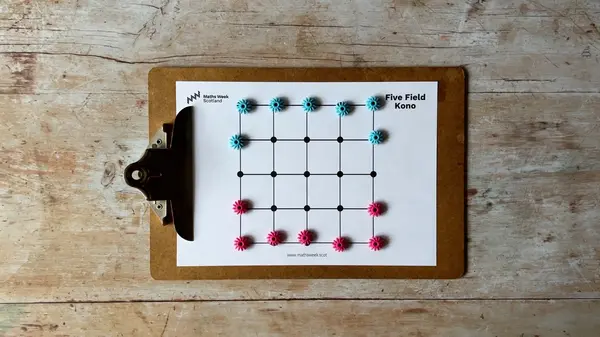
Today, we have another traditional strategy game to share with you, this time from Korea. In Korean, it’s called o-pat-ko-no. In English, it’s know as Five Field Kono.
Five Field Kono is a two player game, played on a 4 x 4 square grid. However, the counters occupy the corners of the squares, not the squares themselves, thus giving you five fields per row. It shares some similarities with Draughts or Checkers, in that you move diagonally across the board, but unlike in Draughts and Checkers you do not capture your opponent’s playing pieces.
You will need
- 2 players
- 7 counters per player, each in a different colour
- A game board - you can make one yourself by drawing a 4 x 4 squares grid, or you can download our game board below.
Aim of the Game
The aim of the game is to be the first to get all your counters to your opponent’s side of the board.
Set-up
Each player places their counters on the board, with five counters on the fields of the row nearest to them, and the remaining two on the fields furthest left and right in the next row (see image below).
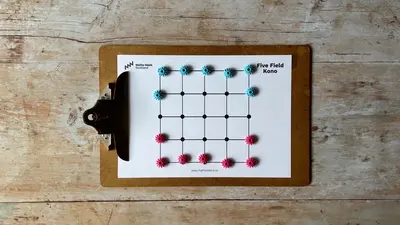
How to Play
Players take it in turn to move one of their counters on the board.
- Counters move diagonally only, to an adjacent empty field. You land on a field that is already occupied by another counter.
- You can only move one space at a time.
- You cannot jump over or capture another counter.
Here we can see all the possible opening moves that pink can make:
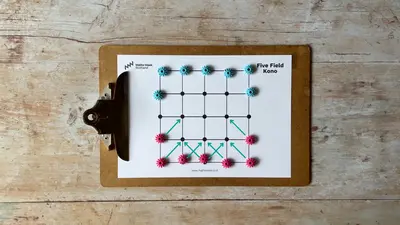
You can move forwards OR backwards. Whilst the aim of the game is to get to the opposite side of the board, sometimes you may find yourself in a situation where you can only move backwards.
You might also choose to move a counter backwards for strategic reasons, to block an opponent’s move.
In this example, pink is pretty much boxed in, the only move pink can make is to move their one counter backwards as shown:
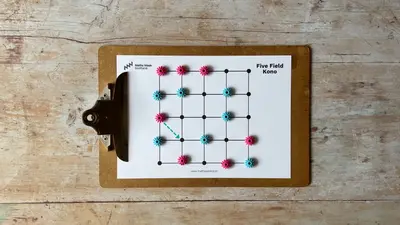
The aim of the game is to move your counters over to your opponent's side of the board:
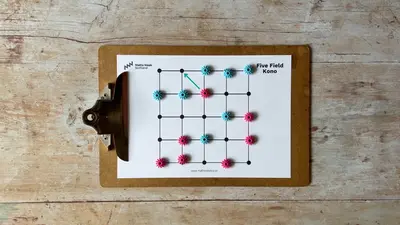
End of Game
To win the game, a player must move all their counters to the other side of the board, into their opponent’s starting position.
In this example, blue wins the game:
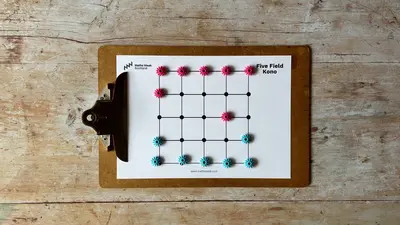
If neither player can get past the other, or they up in a situation where they are able to perpetually block each other from moving, then they can both agree to end the game as a draw.
Latest News and Events

STEM Ambassadors in Scotland Week 2026
STEM Ambassador in Scotland (SAIS) Week is a celebration of all things STEM in Scotland through the experiences of our STEM Ambassadors.

Active Maths Challenge
Start the year with our mini Active Maths challenge and measure what progress you can make over four weeks.
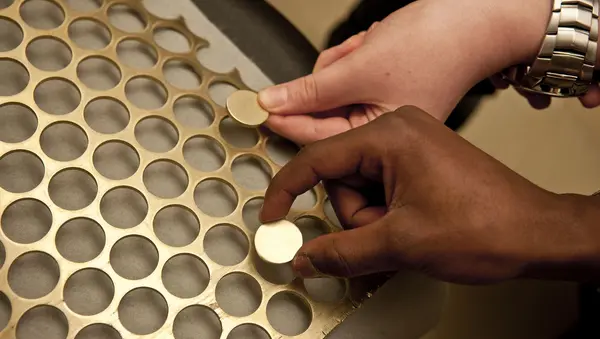
Money Maths at Museum on the Mound
We are excited to offer Maths versions of our popular money-themed schools workshops. These are entirely free of charge. Best suited for P5-P7 pupils.